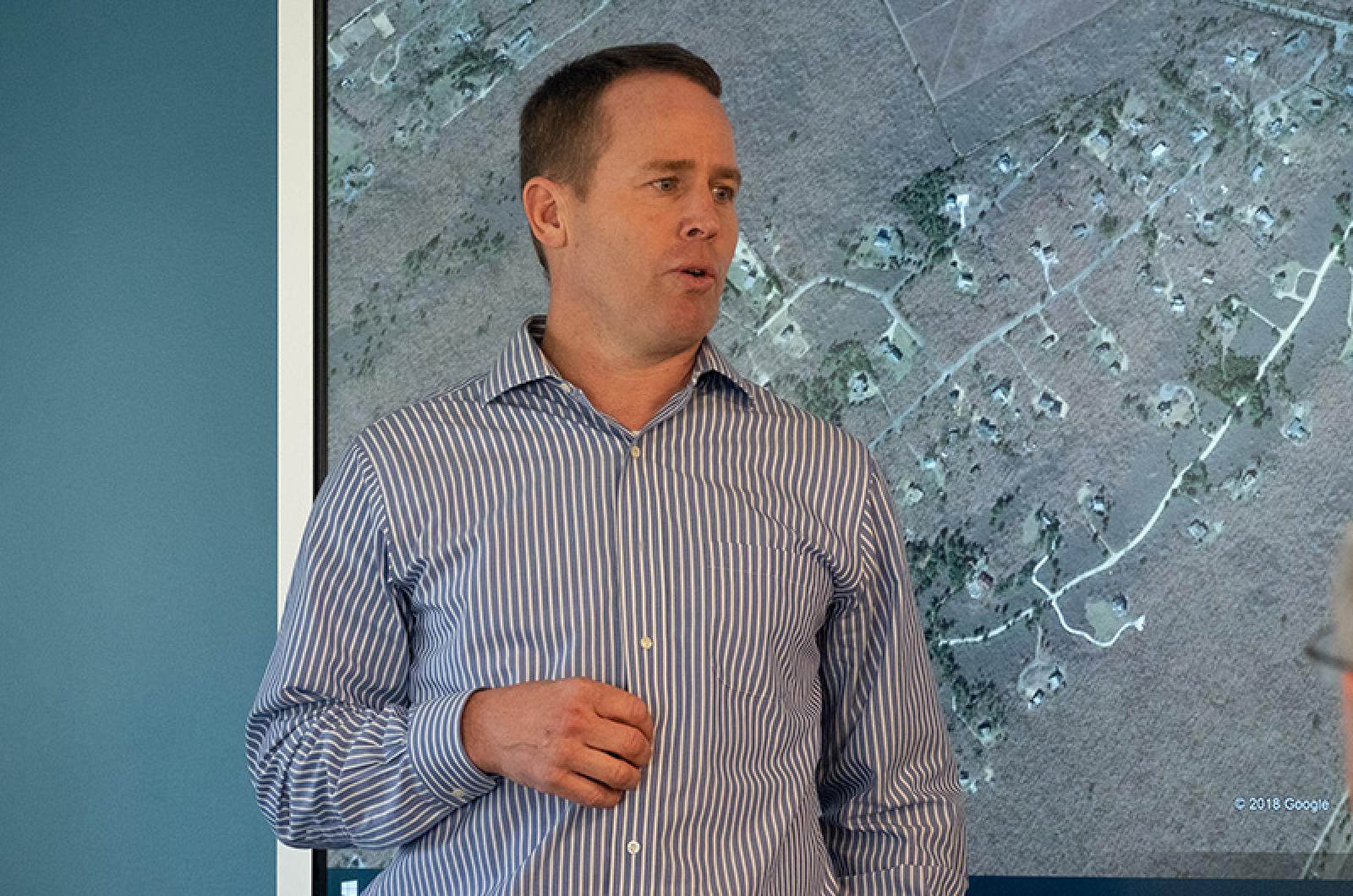The environmental consultant who is evaluating PFAS contamination in private wells south of the Martha’s Vineyard Airport filed an action plan with the state over the weekend outlining short and long-term solutions to the contamination, including the installation of water filtration systems in affected homes.
The immediate response plan was filed by airport consultant Tetra Tech following the determination that 13 private wells out of 96 tested south of the airport since November contained elevated levels of PFAS. Found in firefighting foam, Per and Polyfluoroalkyl substances (PFAS) turned up in monitoring wells at the airport last summer. PFAS can pose dangers to human health when ingested.
Based on initial findings, Tetra Tech estimates in the report that wells with elevated PFAS levels are found in an area spreading from the airport to properties roughly 1,000 feet downgradient of Edgartown-West Tisbury Road, primarily between Waldron’s Bottom Road and Vineyard Meadow Farms Road.
PFAS concentrations found in private wells in the initial phase of Tetra Tech’s investigation ranged widely, from none detected in the majority of the 96 private wells to more than 800 parts per trillion (ppt) in several, far exceeding safe limits of 70 parts per trillion as outlined in state Department of Environmental Protection guidelines. The report identifies six of the 13 properties containing PFAS levels that could pose an immediate health hazard. Since the contamination was discovered, residents have been asked to stop using water from their private wells and bottled water is being provided to them in the short-term.
For a longer term solution, Tetra Tech will begin installing point of entry water treatment systems in up to 26 properties beginning in February. The properties include those with wells containing PFAS levels over 70 ppt and, as a precaution and subject to confirmation testing, 13 more properties where PFAS concentrations exceeded 20 ppt. Installation will begin at properties with wells containing the highest PFAS levels and is expected to be completed by the end of April.
Tetra Tech first tested the efficacy of the point of entry system in December on one private well with PFAS levels over 70 ppt and found that levels plummeted to 2 ppt, an overall reduction of more than 99.9 per cent.
The systems cost approximately $4,000 apiece and the airport will pay for installation and monitoring, Tetra Tech director of remediation Ron Myrick said.
The report also explains that no specific actions are currently planned for the mitigation of PFAS that’s infiltrated the soil and water where firefighting foam was released at the airport, citing the need for further evaluation. Meanwhile, the FAA-mandated foam tests will continue at the airport on a yearly basis with the foam being discharged into a containment tank on the property.
The entire initial site investigation is expected to be completed by November.
The next public meeting regarding PFAS contamination is scheduled for Wednesday, Jan. 30 at 5:30 p.m. in the airport terminal. Mr. Myrick will be on hand to present the findings of the initial investigation and provide more information on actions outlined in the response plan.







Comments
Comment policy »